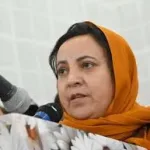WORLD ALZHEIMER’S MONTH
Everyone becomes forgetful from time to time: forgetting where you placed the car keys, not remembering to pick up an item at the grocery store, forgetting to return a friend’s phone call. Have you ever gone into a room and forgotten why you went in there? Have you ever forgotten what you were just about to say? If your answer is yes to any of these questions, you are not alone.
It is important to note that everyone forgets things now and again, as episodes of absentmindedness happen throughout life. Memory does change as we age, but forgetfulness is common for people at all stages of life. And as we age, most of us become increasingly forgetful. At least half of those over age 65 say that they are more forgetful than they were when they were younger, experiencing “senior moments” about things like where they put things or recalling somebody’s name.
Memory loss that accompanies aging doesn’t necessarily occur because you’re getting older, but because you’re not exercising your brain enough during your senior years. That’s why staying active by participating in activities that keep the mind and body sharp can ward off memory loss.
Understanding the memory
Memory actually takes many different forms. We know that when we store a memory, we are storing information. But what that information is and how long we retain it determines what type of memory it is. The biggest categories of memory are short-term memory (or working memory) and long-term memory, based on the amount of time the memory is stored. It is important to understand the memory, how it works. There are three types of memory.
Immediate or working memory – Working memory is not completely distinct from short-term memory. It is a term that refers to memory as it is used to plan and carry out behavior. One relies on working memory to retain the partial results while solving an arithmetic problem without paper, to combine the premises in a lengthy rhetorical argument, or to bake a cake without making the unfortunate mistake of adding the same ingredient twice
Intermediate or short term memory – Short-term memory is related to the primary memory and is a term that reflects faculties of the human mind that can hold a limited amount of information in a very accessible state temporarily. One might relate short-term memory to a pattern of neural firing that represents a particular idea and one might consider the idea to be in short-term memory only when the firing pattern, or cell assembly, is active. The individual might or might not be aware of the idea during that period of activation.
Remote or long-term memory – Long-term memory is a vast store of knowledge and a record of prior events, and it exists according to all theoretical views; it would be difficult to deny that each normal person has at his or her command a rich, although not flawless or complete, set of long-term memories.
What can cause the types of forgetfulness?
Unfortunately, many people think that forgetfulness is the first sign of Alzheimer’s disease. Thankfully, minor episodes like the above mentioned do not necessarily lead to serious memory problems or a terminal disease like Alzheimer’s. It can also be a sign of more serious memory problems, such as Pseudodementia, mild cognitive impairment or dementia.
Some memory problems are related to health issues that may be treatable. For example, medication side effects, vitamin B12 deficiency, chronic alcoholism, tumors or infections in the brain or blood clots in the brain can cause memory loss or possibly dementia. Some thyroid, kidney, or liver disorders also can lead to memory loss. A doctor should treat serious medical conditions like these as soon as possible.
Pseudodementia – Emotional problems, such as stress, anxiety, or depression, can make a person more forgetful and can be mistaken for dementia. For instance, someone who has recently retired or who is coping with the death of a spouse, relative, or friend may feel sad, lonely, worried, or bored. Trying to deal with these life changes leaves some people confused or forgetful.
Dementia – Dementia is the loss of thinking, memory, and reasoning skills to such an extent that it seriously affects a person’s ability to carry out daily activities. Dementia is not a disease itself but a group of symptoms caused by certain diseases or conditions such as Alzheimer’s. People with dementia lose their mental abilities at different rates.
Mild Cognitive Impairment (MCI) – signs of MCI include losing things often, forgetting to go to important events and appointments, and having trouble coming up with desired words. Family and friends may notice memory lapses, and the person with MCI may worry about losing his or her memory. These worries may prompt the person to see a doctor for diagnosis.
What needs to be done to avoid Dementia?
If you’re concerned that you or someone you know has a serious memory problem, talk with your doctor. He or she may be able to diagnose the problem or refer you to a neurologist. People with dementia should take steps to prevent further strokes. These steps include controlling high blood pressure, monitoring and treating high cholesterol and diabetes, and not smoking.
Family members and friends can help people in the early stages of dementia to continue their daily routines, physical activities, and social contacts. People with dementia should be kept up to date about the details of their lives, such as the time of day, where they live, and what is happening at home or in the world.
(The Author is Neurosurgeon and Managing Director – IBS Hospital, New Delhi)





